‘Undemocratic’ Putin fires Russia’s opposition
Vladimir Putin’s anti-democratic reforms and his decision to stand for president again have galvanised protest in Russia. Channel 4 News assesses the parties and the politicians who oppose him.
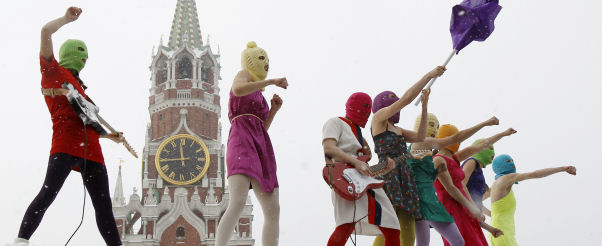
Vladimir Putin’s announcement in September 2011 that he planned to stand in the March presidential elections this year, gave a focus to the protest movement in Russia. Feminist punk band Pussy Riot (pictured above during an impromptu performance in Red Square last month) are just one manifestation of the diversity of opposition to the country’s political status quo.
In 2000, at the start of Mr Putin’s first presidential term, few would have predicted such a flowering of defiance. But now, with the prospect of the former KGB boss returning to the helm of the world’s largest country for at least one more term, many believe Russia’s political framework is, at best, undynamic and, at worst, ossified and corrupt.
Indeed, when it emerged Mr Putin and the current president, Dmitri Medvedev, had hatched the plan for Mr Putin’s presidential return some time ago but had told no-one, critics said it was a clear sign that the ruling elite held Russia’s electorate in contempt.
Then, in December, the vote for the state Duma, the Russian assembly’s lower house, sparked a succession of anti-government protests. Opposition groups claimed the vote had been rigged, despite the fact that United Russia, Mr Putin’s party, suffered a significant falling-off in support.
Channel 4 News reported on 6 December that Boris Nemtsov, a liberal opposition leader, had been detained following large demonstrations in the centre of Moscow. Four days later Russians joined rallies across nine time zones, from Vladivostok to St Petersburg. For many of those involved, this was their first experience of street protest. Opponents from a wide political spectrum had discovered their voice
‘No unified front’
Mr Putin ran the risk of further polarising Russian politics when, on 26 December, in the wake of another day of protests, he dismissed the opposition as unable “to do anything concrete”.
In the same address, Prime Minister Putin drew attention to what some see as a weakness in the country’s political opposition: its diversity. “They have many individual programmes but no unified one, and no clear way to reach their goals, which are also not clear,” he told members of the All Russia People’s Front, an umbrella movement of supporters.
It is a view with which Olga Shorina, a spokeswoman for the Solidarnost movement, disagrees. She believes the widely diverging views of the anti-Putinites give the opposition movement its strength.
“This is an advantage,” she told Channel 4 News, “because all these people with different ideologies all have one goal: to change the political system. This is very important, that different people want to do one thing. I think it makes us stronger.”
Nonetheless, as Russian cities prepare for another day of organised rallies – probably the last before the 4 March presidential vote – there is no doubt that a wide divergence of views will be voiced across Moscow and elsewhere on 4 February. Here is our guide to the people and the parties.
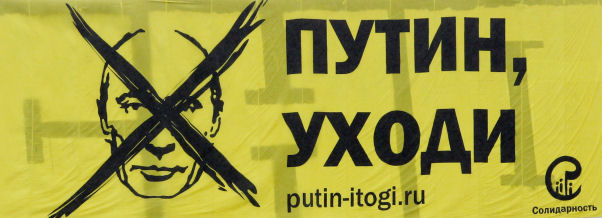
League of Voters
Formed just over two weeks ago by a group of 16 public figures, the League of Voters aims to promote public participation in politics and to ensure that the 4 March presidential elections are free and fair. Several of the founders were prominent in December protests over alleged fraud in the state Duma elections.
The founders include novelist Boris Akunin, rock star Yuri Shevchuk, and ecologist activist Evgenia Chirikova, whose successful 2011 campaign to protect the forest near her house on the outskirts of Moscow achieved national prominence.
People’s Freedom Party (Parnas)
Formed in December 2010 with the motto “For Russia without lawlessness and corruption”, the liberal Parnas (an acronym for People’s Freedom Party) numbers some of the Russian political opposition’s heavy hitters among its ranks, including Boris Nemtsov, Vladimir Ryzhkov and Mikhail Kasyanov.
Another Russia (‘Drugaya Rossiya’)
A broad-based coalition of anti-Putin groups, Another Russia brings together support from chess champion Garry Kasparov’s United Civil Front, the People’s Democratic Union (led by former prime minister Mikhail Kasyanov), and the National Bolshevik Party.
Solidarnost
Named after the 1980s Polish trade union movement, Solidarnost is another broad-based political movement whose founders included Boris Nemtsov and Garry Kasparov. Last June it published a highly critical report on Vladimir Putin’s years as Russian president. It was responsible for the temporary posting earlier this week of a large banner on a rooftop opposite the Kremlin with the message “Putin, go away” (see image above).
Left Front
A far-left grouping led by Sergei Udaltsov, who staged a hunger strike in jail following his arrest on 4 December 2011. Amnesty International was prominent in the campaign to secure the release of Udaltsov, who also leads the Vanguard of Red Youth.
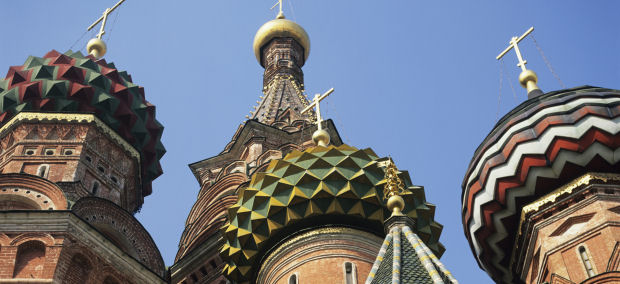
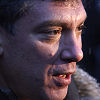
Boris Nemtsov rose to national political prominence under Boris Yeltsin – in the late 1990s, as deputy prime minister, he was touted as a possible future president. His career in the new century as the most prominent opponent of the status quo in Russia has been defined by his opposition to what he sees as Vladimir Putin’s anti-democratic rule.
On new year’s eve he was sentenced to 15 days in prison for “disobeying police”. But Nemtsov is compromised in the eyes of some by the fact that he emerged from within the political establishment.
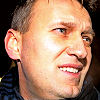
35-year-old lawyer Alexei Navalny is the brightest star in the opposition firmament – and the political opponent most feared by the Kremlin. His relative youth ensures strong grassroots support among younger, more computer-literate voters (he himself is a prolific blogger).
Imprisoned the day after December’s Duma elections, he could not attend the first protest rally, but famously told the second rally on 25 December: “I see enough people here to take the Kremlin and the White House right now. But we are a peaceful force. We won’t do that – yet.”
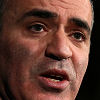
Former world chess champion Garry Kasparov demonstrated an early aptitude for the political arts when he left FIDE, chess’s governing body, and set up his own rival association. In the 1990s he supported Boris Yeltsin’s presidency, but has since become an outspoken critic of Vladimir Putin.
Kasparov’s plan to stand in the 2008 presidential election and “restore democracy” was thwarted by his inability to rent out a meeting hall that could house 500 supporters – a legal requirement. Along with Evgenia Chirikova and Alexei Navalny, Kasparov has been one of the prime movers behind the 4 February demonstrations.
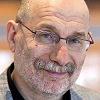
Boris Akunin, like Garry Kasparov, is best known to the world in another incarnation – in his case as author of the Inspector Fandorin crime novels. He has no mainstream political experience, but was one of 16 public figures who came together to form the League of Voters last month. The author says his blog and email account have been hacked into since he became involved in opposition politics.
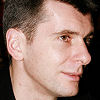
Alexei Kudrin had enjoyed a successful tenure as Russia’s finance minister until his resignation last September following an apparent row with President Dmitri Medvedev. Although previously a political ally of Vladimir Putin, Mr Kudrin has moved to associate himself with the opposition since leaving office. Speaking at the 25 December rally against the Duma poll, he called for fair elections and a dialogue between the political establishment and the opposition.
Mikhail Prokhorov (pictured) is Russia’s third-wealthiest man, with a fortune based on nickel extraction. Although diminished in the opposition’s eyes as an “official” candidate, he has announced his intention to stand in the 4 March presidential elections. Some commentators believe a successful President Putin could choose either Mr Prokhorov or Mr Kudrin as his prime minister after March’s vote.